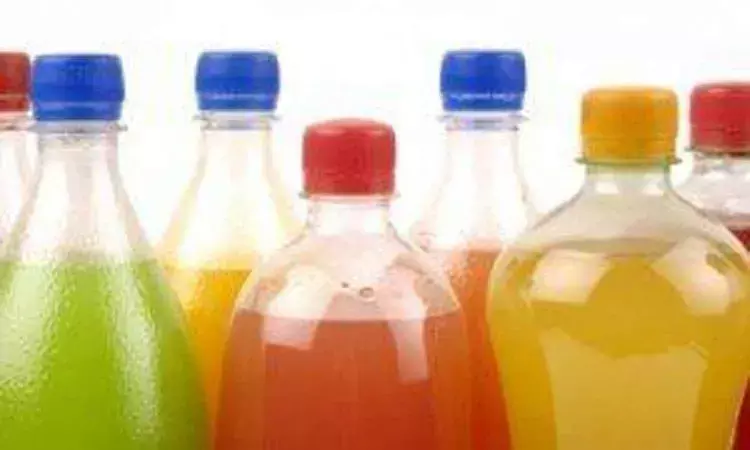- Home
- Medical news & Guidelines
- Anesthesiology
- Cardiology and CTVS
- Critical Care
- Dentistry
- Dermatology
- Diabetes and Endocrinology
- ENT
- Gastroenterology
- Medicine
- Nephrology
- Neurology
- Obstretics-Gynaecology
- Oncology
- Ophthalmology
- Orthopaedics
- Pediatrics-Neonatology
- Psychiatry
- Pulmonology
- Radiology
- Surgery
- Urology
- Laboratory Medicine
- Diet
- Nursing
- Paramedical
- Physiotherapy
- Health news
- Fact Check
- Bone Health Fact Check
- Brain Health Fact Check
- Cancer Related Fact Check
- Child Care Fact Check
- Dental and oral health fact check
- Diabetes and metabolic health fact check
- Diet and Nutrition Fact Check
- Eye and ENT Care Fact Check
- Fitness fact check
- Gut health fact check
- Heart health fact check
- Kidney health fact check
- Medical education fact check
- Men's health fact check
- Respiratory fact check
- Skin and hair care fact check
- Vaccine and Immunization fact check
- Women's health fact check
- AYUSH
- State News
- Andaman and Nicobar Islands
- Andhra Pradesh
- Arunachal Pradesh
- Assam
- Bihar
- Chandigarh
- Chattisgarh
- Dadra and Nagar Haveli
- Daman and Diu
- Delhi
- Goa
- Gujarat
- Haryana
- Himachal Pradesh
- Jammu & Kashmir
- Jharkhand
- Karnataka
- Kerala
- Ladakh
- Lakshadweep
- Madhya Pradesh
- Maharashtra
- Manipur
- Meghalaya
- Mizoram
- Nagaland
- Odisha
- Puducherry
- Punjab
- Rajasthan
- Sikkim
- Tamil Nadu
- Telangana
- Tripura
- Uttar Pradesh
- Uttrakhand
- West Bengal
- Medical Education
- Industry
Consumption of sugar sweetened beverages increases risk of gout flares

Tehran, Iran: The consumption of sugar-sweetened beverages (SSBs) increases serum uric acid concentrations associated with gout flares, according to a recent study in the Journal of Human Nutrition and Dietetics.
The study was conducted due to the conflicting evidence on the association between SSB intake and serum uric acid concentrations. Other studies have shown that poor diet and obesity to be associated with exacerbation of pre-existing conditions that can lead to gout flares.
In the systematic review and meta-analysis, S. Ebrahimpour‐koujan, Tehran University of Medical Sciences, Tehran, Iran, and colleagues aimed to summarise earlier findings on the association between SSB consumption and serum uric acid concentrations in adults. Cross-sectional studies have shown that increased consumption of SSBs and fructose to be associated with increased serum uric acid levels.
The review was narrowed down to five cross-sectional studies published between 2007 and 2013. The number of participants ranged from 483 to 14 761 people and most controlled for age, body mass index, weight, and sex.
The mechanisms by which consumption of fructose-sweetened beverages may lead to increased hyperuricemia is not clear. Researchers suspect that fructose can produce uric acid by increasing the degradation of adenosine triphosphate (ATP) hydrolysis, which is involved in the production of uric acid.
Key findings of the study include:
- Individuals in the highest category of SSB intake had 0.18 mg dL–1 greater concentrations of serum uric acid compared to those in the lowest category (summary effect size: 0.18 mg dL–1).
- No significant between‐study heterogeneity was found.
- In the sensitivity analysis, the researchers found no particular study influence on the summary effect.
"We found that SSB consumption was significantly associated with increased serum uric acid concentrations in an adult population. However, this needs to be confirmed in follow-up studies," concluded the authors.
The study, "Consumption of sugar‐sweetened beverages and serum uric acid concentrations: a systematic review and meta‐analysis," is published in the Journal of Human Nutrition and Dietetics.
DOI: https://doi.org/10.1111/jhn.12796
Dr Kamal Kant Kohli-MBBS, DTCD- a chest specialist with more than 30 years of practice and a flair for writing clinical articles, Dr Kamal Kant Kohli joined Medical Dialogues as a Chief Editor of Medical News. Besides writing articles, as an editor, he proofreads and verifies all the medical content published on Medical Dialogues including those coming from journals, studies,medical conferences,guidelines etc. Email: drkohli@medicaldialogues.in. Contact no. 011-43720751


